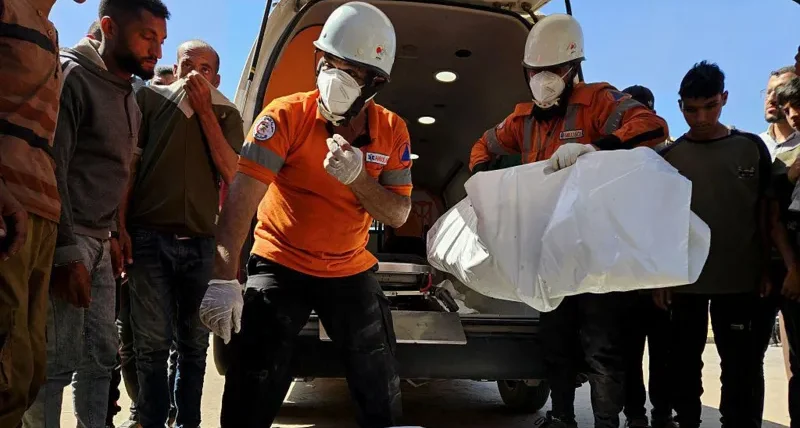A Family’s Tragedy: The Human Face of the Israel-Gaza Conflict
The Israel-Gaza conflict has long been a flashpoint of international tension, but recent events have brought its human cost into sharp relief in a way that has galvanized global attention. In a heart-wrenching incident in southern Gaza, an Israeli airstrike reportedly killed nine children from a single family—the offspring of a respected local doctor—according to hospital officials. The attack has sent shockwaves through communities both in Gaza and worldwide, and intensified scrutiny of Israel’s military actions amid growing diplomatic pressure from Western allies.
The Devastating Strike
In the early hours of a recent morning, the Najjar family home in Khan Younis was hit by an Israeli airstrike. Dr. Alaa Najjar, a pediatrician known for her dedication to the children of Gaza, was at work in the local hospital when the attack occurred. She returned home to a scene of unimaginable horror: nine of her ten children had been killed, their lives cut short in an instant. Her husband suffered severe injuries, and their only surviving child, an 11-year-old boy, remains in critical condition. The bodies of two of the children were reportedly still trapped under the rubble, highlighting the challenges faced by rescue teams in a region where infrastructure has been decimated by months of conflict.
This tragedy is not an isolated incident. Gaza’s hospitals have been overwhelmed with casualties, and the death toll continues to rise. The loss of Dr. Najjar’s children has become a symbol of the broader suffering endured by civilians, especially the most vulnerable—children and families who have no part in the hostilities but bear the brunt of their consequences.
International Reaction and Diplomatic Pressure
The killing of Dr. Najjar’s children has sparked outrage among Israel’s Western allies, who have traditionally supported the country’s right to self-defense. However, the scale of civilian casualties and the targeting of families have led to unprecedented calls for restraint. Leaders from the United Kingdom, France, Canada, and several European Union member states have issued strongly worded statements condemning the attack and urging Israel to reconsider its military strategy.
The European Union, in particular, is facing mounting pressure from its own citizens to take a firmer stance. Public opinion across Europe has shifted significantly, with many calling for sanctions against Israel if the violence does not cease. The UK has already suspended trade talks and imposed sanctions on Israeli settlers in the West Bank, signaling a new willingness to hold Israel accountable for actions that violate international law.
Humanitarian organizations are sounding the alarm about the deteriorating situation in Gaza. The United Nations and various aid groups have warned of a looming humanitarian catastrophe, with shortages of food, water, and medical supplies threatening the lives of hundreds of thousands of civilians. The blockade on humanitarian aid has only worsened the crisis, leaving families like the Najjars with little hope for relief.
The Broader Context
The Israel-Gaza conflict is deeply rooted in a complex history of territorial disputes, political grievances, and cycles of violence. The latest escalation began in October 2023, following a Hamas-led attack on Israeli territory, and has since spiraled into one of the deadliest chapters in the long-running conflict. Both sides have suffered losses, but the disproportionate impact on Palestinian civilians has drawn widespread condemnation.
Israel maintains that its military operations are necessary to dismantle Hamas and prevent future attacks. However, the human cost of these operations—evidenced by tragedies like the killing of Dr. Najjar’s children—has become increasingly difficult to justify in the eyes of the international community. The conflict has also disrupted regional stability, with spillover effects including attacks on international shipping in the Red Sea and heightened tensions with neighboring countries.
A Call for Action
The story of Dr. Najjar and her children is a stark reminder of the human tragedy at the heart of the Israel-Gaza conflict. It underscores the urgent need for a ceasefire, the protection of civilians, and a renewed commitment to diplomatic solutions. The international community must act decisively to prevent further loss of innocent life and to address the root causes of the conflict.
As the world watches, the fate of families like the Najjars hangs in the balance. Their suffering is a call to action—a demand for humanity, compassion, and justice in a region too often defined by violence and despair. The time for words has passed; the time for meaningful action is now.

